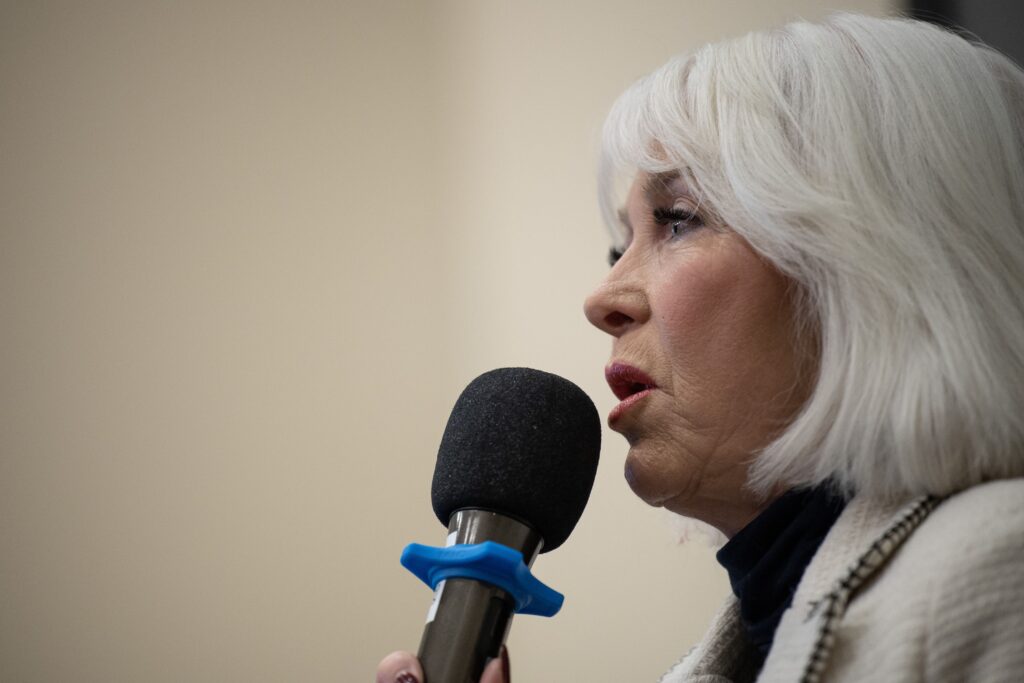Colorado appeals court overturns murder conviction due to unconstitutional search warrant

Colorado’s second-highest court on Thursday reversed a woman’s murder conviction in Adams County because the search warrant police used to uncover incriminating information from her cell phone was unconstitutional.
A jury convicted Dayna M. Jennings in 2019 of murdering her father, William Mussack, after she poisoned him with the animal sedative acepromazine and buried him in concrete in their basement. Police obtained a warrant for Jennings’ phone, where they found she had searched for, among other things, “how long does it take for a body to decompose.”
But a three-judge panel for the Court of Appeals believed the application to examine the cell phone violated the Fourth Amendment’s requirement that any warrant describe “particularly” the place to be searched. Most problematic was a provision of the warrant that authorized a “full digital download” of the phone.
“The warrant allowed an unlimited search of the data on Jennings’s phone,” wrote Judge Lino S. Lipinsky de Orlov in the panel’s April 13 opinion.
Authorities in Federal Heights applied for a cell phone search warrant in January 2018. Mussack had ceased contact with others the prior month and Jennings, who lived with her father, offered a dubious explanation for his whereabouts. Officers first obtained a warrant to search the home, where they found Mussack’s remains encased in concrete in a basement crawl space.
The subsequent warrant for Jennings’ phone authorized an extraction of its contents between December 2017 and January 2018. It also included all text messages, media, location data and a “full digital download” without a time limitation.
The subsequent download revealed that Jennings’ search history included acepromazine, missing persons reports, the time required for a body to decompose and “how much blood is in the human body.”
Jennings moved to exclude her search history as evidence, arguing police obtained it in violation of the Fourth Amendment’s particularity requirement. Chief Judge Don Quick denied her request.
Jennings did not dispute at trial that she played a role in her father’s death, but she maintained she gave Mussack a low dose of acepromazine for therapeutic reasons. He allegedly died unexpectedly and she panicked.
In contrast, prosecutors pointed to Jennings’ search history to show she acted with the intent required for a first-degree murder conviction. Jurors agreed with the government and convicted Jennings.
On appeal, Jennings again argued the search warrant was unconstitutional and Quick should have suppressed the evidence of her Internet searches. The government countered that in context, the full digital download was meant to be time-limited. In any event, police acted in good faith and they obtained the same information through later, valid search warrants, the Colorado Attorney General’s Office elaborated – even though prosecutors had not made that argument in the trial court.
In February, the appellate panel issued an order pausing Jennings’ appeal and sending the case back to Quick to decide whether the cell phone data was still usable under the alternative argument the attorney general’s office raised.
“We agree with Jennings that the first warrant was overbroad. However, because the trial court did not consider whether any of the evidence obtained from Jennings’s phone was admissible pursuant to one or both of the exceptions, we remand the case for the trial court’s determination of whether either or both of the exceptions applies,” wrote Lipinsky and Judges Terry Fox and Karl L. Schock.
Jennings’ lawyer quickly asked the panel to withdraw its ruling. The state Supreme Court, argued public defender John Plimpton, has not authorized the Court of Appeals to avoid deciding a Fourth Amendment case by instead directing trial judges to consider an argument the prosecution never originally made.
The attorney general’s office agreed the panel violated procedural rules and, similarly, asked it to pull its order.
Acknowledging their mistake, the appellate judges reversed course and issued an opinion concluding that, based on the proceedings to date, Quick had mistakenly found the search warrant complied with the Fourth Amendment. The panel did not consider whether evidence of Jennings’ searches did not need to be excluded after all under the prosecution’s newly-raised arguments.
Instead, it left open the door to such arguments in Jennings’ new trial.
“On retrial, the court may, in its discretion, allow the parties to present additional evidence or arguments concerning whether an exception to the exclusionary rule applies,” Lipinsky wrote.
The case is People v. Jennings.














